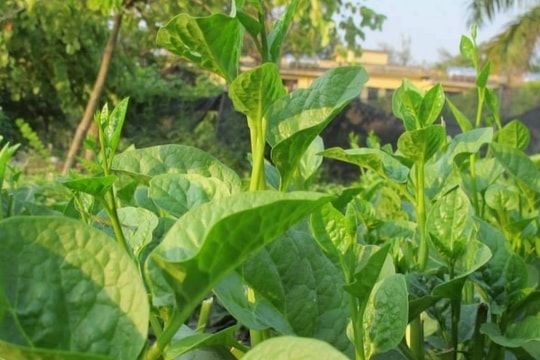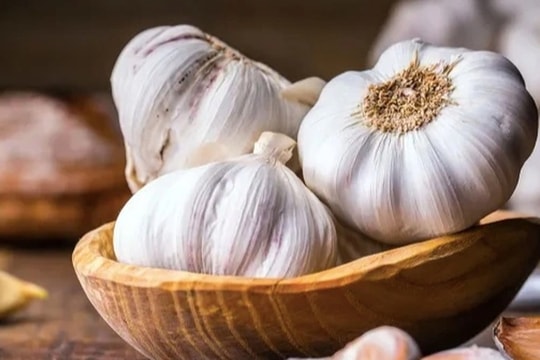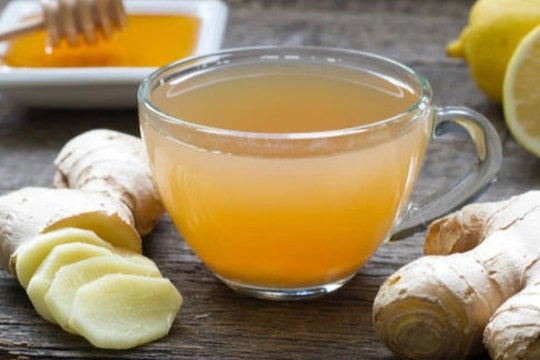Things to know when eating Malabar spinach to avoid getting sick
Malabar spinach is a familiar vegetable, bringing many health benefits, with the ability to absorb bad cholesterol... However, some people should limit eating it to avoid harming their health.
Uses of Malabar spinach
According to the Department of Food Safety (Ministry of Health), Malabar spinach provides many important nutrients for the body such as sodium, lipid, potassium, fiber, carbohydrates, protein, calcium, iron, and many vitamins in Malabar spinach leaves such as vitamins A, B6, B12, C, and D.
Just one small bowl of cooked Malabar spinach a day provides enough vitamin A and iron for your body's needs. Just half a bowl of cooked Malabar spinach provides 190% of your body's vitamin A and 20% of your body's iron needs.
The ingredients in Malabar spinach promote digestion by adding mucus and soluble fiber, facilitating and reducing constipation.
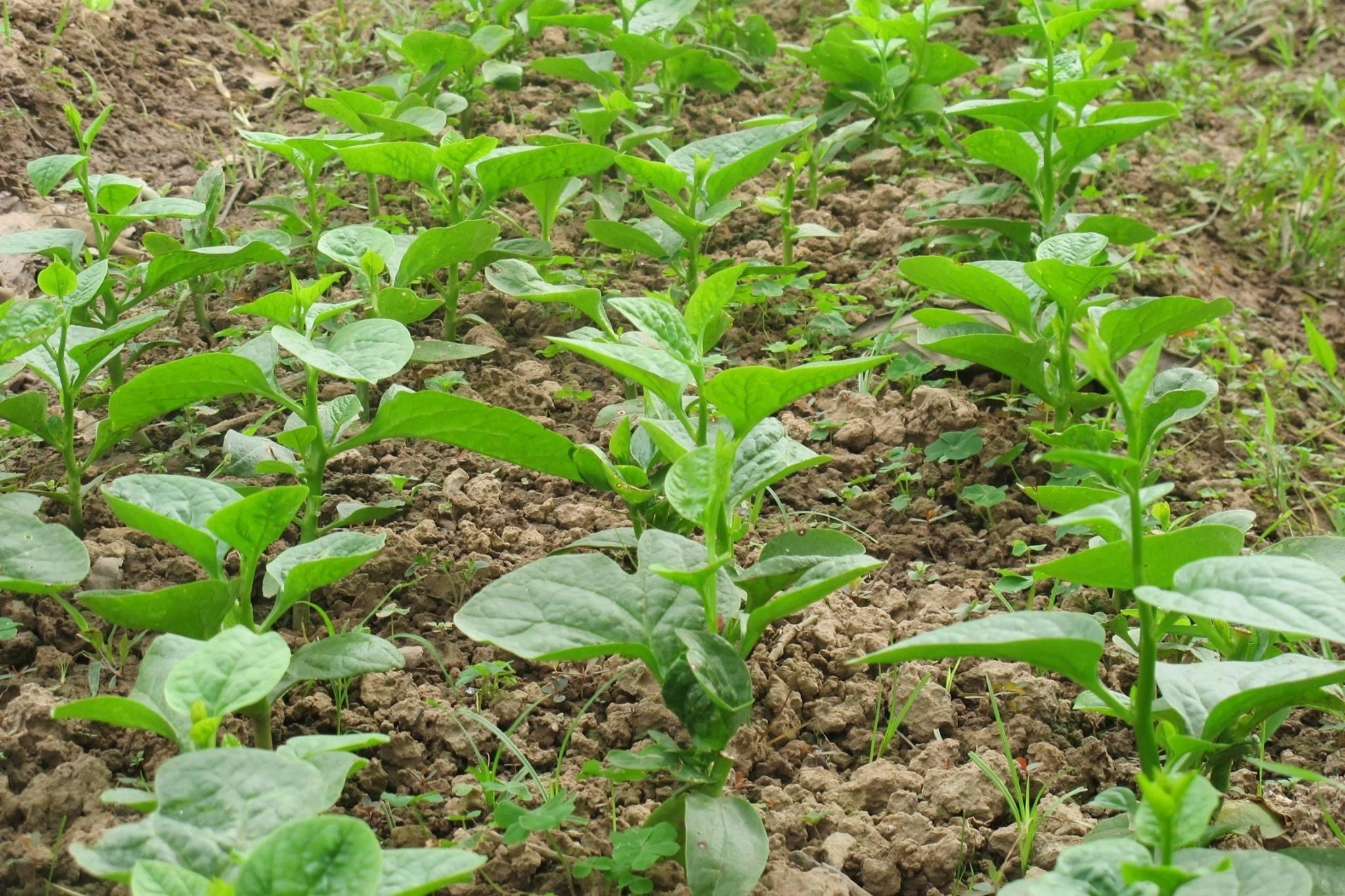
Malabar spinach is a familiar vegetable in the meals of many Vietnamese families. Photo: NP
Malabar spinach is cold, sour, non-toxic, diuretic, detoxifying, beautifying the skin, treating prickly heat, acne, anemia, heatstroke. Malabar spinach juice can help heal burns quickly, stewed Malabar spinach with pig's feet is good for people with aching bones and joints.
According to District 11 Hospital (HCMC),Vitamin C in Malabar spinach leaves is 3 times higher than in mustard greens, and vitamin A is 1.5 times higher than in kale. Some researchers have reported experimental anti-cancer, antioxidant, and anti-inflammatory activities of Malabar spinach due to the presence of beta-sitosterol.
Malabar spinach is also beneficial for pregnant mothers and fetuses thanks to folic acid, one of the B vitamins that prevents congenital neural tube defects such as spina bifida.
Iron is also a nutrient in Malabar spinach that is very beneficial for pregnant women. Thanks to that, the nutrition of Malabar spinach participates in creating new cells, enhancing cardiovascular health and preventing cancer.
The pectin mucus in Malabar spinach has the ability to absorb bad cholesterol, so cholesterol does not enter the blood but is excreted through the bowels, helping you lose weight.
Thanks to that, Malabar spinach not only has the effect of laxative, eliminating damp heat but also reduces fat, prevents obesity. This vegetable is especially suitable for people with high blood fat, high blood sugar, and want to lose weight.
The juice of Malabar spinach also has the effect of healing wounds, especially those caused by burns. The reason is that the mucus from Malabar spinach has the effect of healing wounds quickly.
According to the Vietnam - Cuba Friendship Hospital in Dong Hoi (Quang Binh), the amount of vitamin C in Malabar spinach helps the body improve its immune system, prevent disease and reduce the duration of illness.
It contains many antioxidant carotenoid pigments. These substances neutralize harmful free radicals and can prevent cancer. In addition, Malabar spinach is rich in vitamin A, which helps prevent cataracts or vision loss.
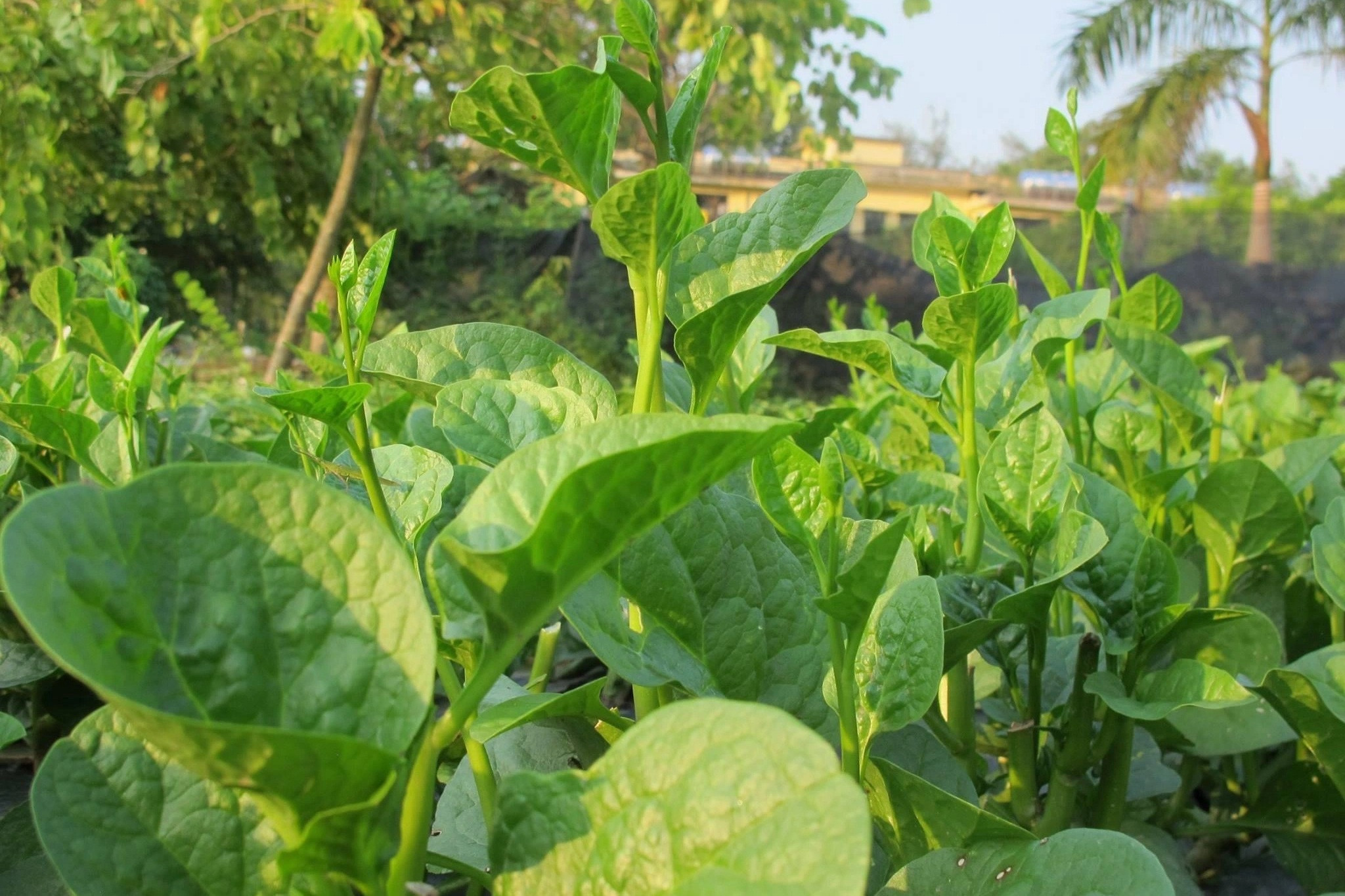
People with kidney stones and gout should limit eating Malabar spinach. Photo: NP
Who should limit eating?
This vegetable is rich in nutrients but contains high levels of oxalic acid and purine. Therefore, if eaten too much, it can cause calcium oxalate in the urine to accumulate in the body, easily causing kidney stones. High uric acid levels increase the risk of gout. Therefore, people with kidney stones and gout should limit their intake of Malabar spinach.
In addition, Malabar spinach has a cooling, heat-clearing, and anti-constipation property, so people with diarrhea or loose stools should not eat it.
After preparing the Malabar spinach dish, you should eat it all within the day. You should reheat it each time you eat it. You should avoid leaving it overnight, as the Malabar spinach can spoil and lead to poisoning./.

